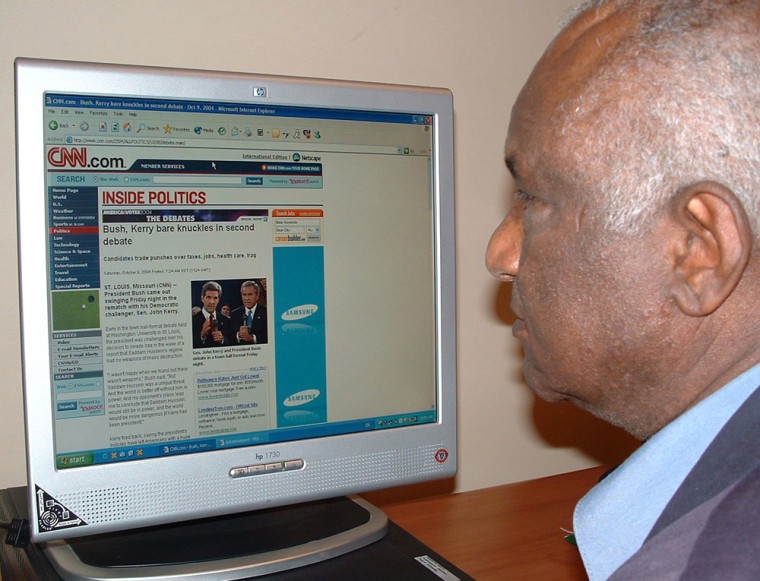Satellites and telephone wires bring the battle for the White House to an Internet cafe 7,200 miles away in Addis Ababa, capital of Ethiopia, where Girma Hagos goes for his daily dose of U.S. election news.
“What happens in America affects us all,” the 66-year-old leather exporter said as he sat at a computer. He backs Democratic challenger John Kerry, saying: “I think he will show more interest in Africa.”
Through the Internet and satellite television, the world can watch as never before and — via a myriad of Web sites — virtually back their preferred candidate.
In Ethiopia, 90 percent of people are too poor to have access to television or the Internet, but there is enough middle-class interest in American politics for state-owned television to offer daily coverage of the race in four languages.
And many people elsewhere around the globe watched the presidential debates live on television or via the Web — the main forum for non-Americans with no vote on Nov. 2.
Global campaign
They can register a preference on Web sites such as http://worldpeace.org.au/virtualelection.asp, offering a “U.S. Election for the Rest of The World.”
“Let’s help the U.S. figure out who their president should be. Lord knows they spend a lot of time ’helping’ other countries with theirs,” says the site.
Kerry led with 44 percent of the more than 10,000 votes cast on the Australia-based site as of Oct. 19, while President Bush had just over 5 percent. Independent Ralph Nader, who in real polls scores in the low single digits, had 39 percent of the Internet vote.
Non-Americans can also lobby Americans living abroad to vote by absentee ballot via www.tellanamericantovote.com. Other campaigners (www.boycottbush.org) are calling for a boycott of companies that fund the Republican Party and for alternative “U.S. Presidential Elections for Another World” on Nov. 2.
The makeshift elections are planned in Brussels and Ghent in Belgium, London, Barcelona and Ibiza in Spain, Budapest in Hungary, and in Brazil, said Pol D’Huyvetter, a Belgian organizer.
Online protest
In Germany, the Web site of the Munich-based newspaper Sueddeutsche Zeitung allows readers to test whether they are “Bush or Kerry types,” while the Tagesspiegel daily invites them to an online election game.
And for a humorous approach, try the “Drunk Against Bush” site at http://detfalskested.dk/bush/en/. It invites visitors to register every pint of intake as a protest against the president, a teetotaler who renounced alcohol after concluding he was drinking too much.
“Some people demonstrate, some make movies and others terrorize when they are unhappy with something. We, the supporters of the DAB initiative, are drinking our way to a just and fair world,” it says.
